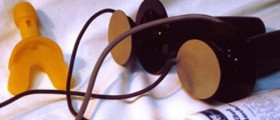
Divalproex Sodium for Seizures
Divalproex sodium is a type of medication used to treat epileptic seizures by affecting chemicals that play an important role in causing recurring fits. In some instances Divalproex sodium is used as a single medication while in others it is combined with different drugs to increase the benefits or decrease the side effects of seizure medications. When it comes to taking the drug, the doctor’s advice should be followed as closely as possible. Studies have shown that Divalproex sodium needs to be taken with plenty of water or other type of liquid. The medication comes in capsules which can be opened and mixed with a sugary substance to make the swallowing easier. Further, the prescribing physician will refer the patient to periodic liver tests to rule out any defects caused by Divalproex sodium. In case the symptoms stop and the person is not experiencing any more seizures stopping the medication is not recommended unless talking to the doctor first. Also, gradually decreasing the dosage is the safest way to go to avoid going into withdrawal. The bottle should be stored in a dark place at room temperature. Lastly, anyone who is taking Divalproex sodium should wear a wrist tag so that any medical care professional such as a dentist or an emergency room doctor is made aware that the patient is taking anti convulsion drugs.Divalproex Sodium Side Effects
Individuals who are pregnant need to consult with their primary health care providers before deciding to take Divalproex sodium as it can harm the fetus. Different clinical trials have shown that the medication adversely affects the cognitive development of the baby and can lead to permanent disabilities if the mother takes Divalproex sodium during pregnancy. In comparison to the children whose mothers took different medications for treating seizures while pregnant, Divalproex sodium affected individuals achieved lower scores on intelligence and problem solving tests. Physicians will weigh the potential costs against the benefits and make a decision whether to prescribe Divalproex sodium for seizures during pregnancy. If it is decided that the pregnant woman should take Divalproex sodium under no circumstances should the medication be discontinued or the dosages changed without approval from a specialist. Similarly, persons who are nursing would pass on the Divalproex sodium to the baby and unless approved by a doctor the drug should not be taken. When it comes to taking the medication it is very important to be aware of the side effects and report them to the prescribing doctor as he or she may decide to change the therapy altogether. Some of the most common adverse effects of the Divalproex sodium include stomach ache, vomiting, nausea, dark urine, change in the colour of the stool, general loss of appetite, and increased body temperature. Such symptoms may also point to liver defects possibly caused by the medication. Other than the changes in the physical state, Divalproex sodium also produces psychological side effects. Many individual could face changes in the mood such as anxiety or depression, irritability, hyperactivity, sleep disturbance, as well as thoughts of suicide. Divalproex sodium is primarily a medication for adults although in some rare cases clinicians will prescribe it to children. If a child needs to take Divalproex sodium with another anti-convulsion medication the risk of liver damage is higher than in adults taking only one drug. In adults, Divalproex sodium can sometimes lead to pancreas infections that can come back even after the patient has stopped taking the drug for a long time.Who Should Not Take Divalproex Sodium?
Individuals who beside epilepsy also suffer from conditions such as liver disease should probably look for alternative treatments and stay away from Divalproex sodium unless the medical care professional believes the desired effects would be stronger than the potential for harm. Also, those who have underlying blood clotting problems are not the best candidates for Divalproex sodium and their physician will likely prescribe them something else. Anyone who has suffered from urea cycle disorder should seek different types of medications for epilepsy. Persons who have sustained head trauma, brain damage or disorder or who were in a coma should not take Divalproex sodium. Finally, individuals with HIV or AIDS would cause more harm to the body than positive effects if were to take the medication. In cases of mental disturbances, persons who are prone to strong depression episodes need different kind of seizure medication to avoid the possibility of suicidal thoughts or even suicide. Family members and care givers are advised to monitor the patient, be on the lookout for changes in mood, and report any to the primary health care provider. Such changes could occur a few months after the person has first started to take Divalproex sodium or any time when there is a change in the prescribed dosage.
















Your thoughts on this
Loading...